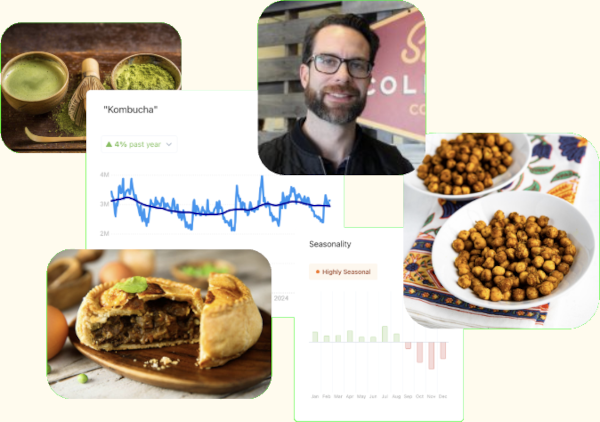Category Analysis - Soap

Overview of the Soap Industry
The soap industry has long been an essential component of personal care and hygiene practices globally. Historically, soap was regarded as a luxury item, but in today's world, it is an indispensable staple in daily routines. This market encompasses a wide array of products, from bar soaps to liquid hand washes, each catering to the diverse preferences of consumers. The industry has experienced notable developments over the last few decades, significantly influenced by changing consumer behaviours and socio-economic factors.
According to Statista, the global soap market was valued at approximately $31 billion in 2020 and is projected to reach nearly $45 billion by 2028. This growth reflects increasing awareness around personal hygiene and the pivotal role soap plays in public health, notably emphasised during the COVID-19 pandemic.
Recent Trends in the Soap Market
One significant trend in the soap market is the surge in demand for natural and organic products. As consumers become more discerning, there is a marked shift towards products that are free from synthetic ingredients, thus prioritising health and environmental sustainability. The Mordor Intelligence report indicates that the natural soap segment is anticipated to grow at a rapid pace, driven by an increasingly eco-conscious consumer base.
Moreover, a growing preference for premium and artisanal soap products has emerged. Consumers are now willing to pay a premium for quality ingredients and unique fragrance profiles, pushing brands to innovate. Companies such as Lush and The Body Shop have reaped the benefits of this trend by offering distinctive, ethically sourced products that resonate with this increasingly sophisticated market demographic.
Economic Overview of the Soap Industry
The soap industry demonstrates resilience against economic fluctuations, with demand remaining relatively stable even in adverse economic conditions. However, several underlying factors can influence the economic dynamics of the industry. For instance, rising raw material costs, particularly for natural ingredients, can squeeze profit margins for manufacturers, leading to price hikes that may impact consumer behaviour.
Additionally, the soap market has also witnessed significant consolidation, with major players acquiring smaller brands to expand their product portfolios. Such strategies allow firms to capitalize on market trends, driving growth in a competitive landscape. A prime example is the acquisition of Dove by Unilever, which streamlined its global operations while diversifying its product offerings.
Market Growth and Contraction Factors
The soap industry's future appears bright, with growth projections stemming from increasing urbanization, improved living standards, and heightened awareness of hygiene practices across emerging economies. Particularly in regions such as Asia-Pacific and Latin America, the demand for personal care items, including soap, is anticipated to grow steadily, fueled by a burgeoning middle class.
Conversely, contraction in certain markets can occur due to economic slowdowns or changing consumer preferences. For instance, the shift towards waterless products and solid alternatives, such as shampoo bars, creates competition for traditional soap offerings. Market players will need to adapt swiftly to capture customer interest in such innovative solutions.
Major Players in the Soap Industry
The soap industry is replete with well-known brands and companies that have established dominance over various market segments. Procter & Gamble, with its flagship products like Old Spice and Head & Shoulders, is a front-runner in both the liquid and bar soap categories. Similarly, Unilever holds a formidable presence in the market with brands like Dove and Lifebuoy.
Moreover, brands such as Burt's Bees and Biore cater primarily to the natural soap market, successfully appealing to eco-conscious consumers. As the market continues to evolve, the adaptability of these brands will likely determine their standing in an increasingly competitive landscape.
Conclusion
In summary, the soap industry is poised for continued growth, driven by health and hygiene awareness and consumer demand for sustainable products. Despite challenges related to raw material costs and changing preferences, innovation remains at the forefront of this dynamic market.
The ability of major players to navigate economic fluctuations and embrace new trends will be crucial in maintaining their competitive edge. The future of soap lies not just in its cleansing properties but ultimately in its resilience and adaptability to meet the ever-changing whims of consumers.
Example Products in this Category:
Brands in this Category:
| Name | Story | Brand Categories | |
|---|---|---|---|
| Name | Story | Brand Categories | |
| sunshinecoastlavender | None | Hand & Body Lotion,Liquid Hand Soap,Artisan Soap,Body Butter | |
| Dot & Lil | A WARM HUG ON A COLD DAY. Dot & Lil is a line of fine bath products carefully designed and crafted in our Montréal atelier. Our products celebrate the special world of flowers, and the beauty of simplicity and tradition. Dot & Lil makes heirloom-inspired, finely crafted goods for bath, body & home. Our products are all made by hand in our Montréal atelier. The things we make are inspired by great ladies of the past, the universe of flowers, and the beauty of tradition. | Bath,Body Care,Gifts,Soaps,Perfumes,bath cubes,gifts & sets,bar soaps,Home,Home Fragrance,wellness,Bath Products,Body,Home | |
| TurmeriX | Founded by Errol McClelland, TurmeriX was born out of a personal journey to find a natural solution for chronic pain and inflammation. After extensive research and trials, Errol discovered the potential of high-quality turmeric and created TurmeriX to share its benefits with others seeking natural health solutions. | Turmeric Capsules,Turmeric Powder,Chocolate Bars,Hand Cream,Soap | |
| Green Hemp Australia | Founded in 1989 by Colin Buckler in St Andrews, Victoria, Australia, Green Hemp Australia focuses on organic, Australian-grown hemp products. Colin's journey began with a passion for sustainable farming practices, inspired by the environmental impact of cotton farming. After facing devastating losses in the 2009 bushfires, Colin rebuilt the business, emphasizing the benefits of hemp seed oil for health and skincare. Today, the brand offers a range of skincare and haircare products made from 100% Australian-grown hemp seed oil, promoting both environmental sustainability and customer wellness. | Balms,Lotions,Face Cream,Hair Care,Hemp Seed Oil,Massage Oil,Hemp Soap |






















